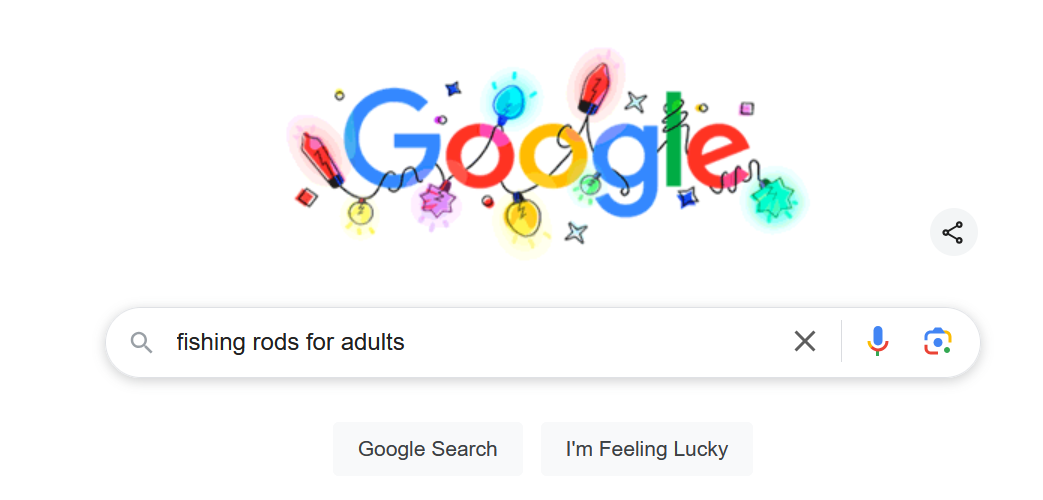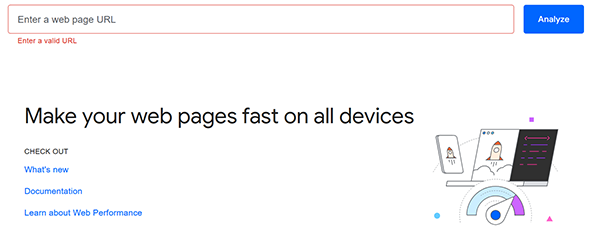Finding A Low-Competition Niche for your WordPress Blog
Posted 2024-12-11
When creating your first blog, either using WordPress or another platform, selecting the niche in which your blog covers is vital to its success. If you're looking to make money from blogging, Niche selection is arguably the most important starting point for any new blog and will set you on the right path to success.
Blogging has become extremely difficult in the last five years. AI generation has exploded, meaning blog articles are now written in seconds rather than hours and Google Algorithms are back with a vengeance, de-ranking even the most legitimate sites.
But you can still make a successful blog by choosing the right Niche. AI content still struggles to feel authentic in many cases and there is still an audience who prefers to use an authority site rather than trusting a synthetic article written by AI.
And so, choosing a Niche for your blog is now more important that ever.
Why does my Blog need a Niche?

The term Blog Niche is usually a SEO optimized strategy that became very popular in the early 2010s. It refers to a blog covering a topic so that search engines like Google recognize that your site is the authority for that Niche.
New sites struggle to rank their articles because Google doesn't yet assign authority and trust to them. When you write your first few articles, you'll struggle to see them show in search engines and you'll get very little traffic outside of your own marketing efforts.
By choosing a specific Niche, the topics on your blog are all interlinked through one single point of interest and it allows a search engine to understand what your blog is about. The more google recognizes your site as providing quality content for a single topic, the more likely it will choose to rank your articles above others.
This has become increasingly more difficult in the last few years however. Google Core Updates, which affect how sites are ranked, has made it increasingly more difficult to rank for niche topics. They have instead reverted to boosting the rankings of high-authority sites, YouTube videos and other content, making small blog sites become more and more invisible.
In the SEO community, this change in how Google ranks site, has been attributed to the rise of AI generated content. Google struggles to determine if you really know your Niche topic, or you've just used a site like ChatGPT to create a hundred (or even a thousand) articles and put them onto a website.
And so, being able to offer personalized insight into a Niche topic is now more important than ever. You need to really know your stuff, or able to research incredibly well and produce high-quality content that even an AI app can't create.
Why can't my blog be about every topic I find interesting?
It can.
But the way Google ranks sites means that you'll struggle to rank for every single topic.
A website focused on dog grooming products will find that publishing an article about the best security cameras is unlikely to rank 99% of the time. This is because Google knows your site is about dogs and that you have some expertise in that topic. Switching blindly to security cameras makes Google think the topic isn't relevant to your site, you don't know your stuff and will prefer to rank a site that is dedicated to security cameras.
Having a Niche works and has been proven many times by successful bloggers who have replicated this process.
Your niche can be as broad as "video games" or as detailed as "types of Fishing Rods". The more specific your niche, the more chance you have of success.
There are exceptions to this rule, such as new emerging niches that no one is covering yet, or inter-related niches that can cover multiple topics.
One thing to consider is how much content can you produce for your Niche. If the niche is too specific, you might not have enough content for it to be worth creating a blog about.
But if you're creating your first ever blog, and want to start making some side-hustle money, the best way to start is by choosing a Niche.
So let's get started.
Finding A Low Competition Niche for Blogging

The first part of finding your Niche is to choose a topic you're interested in and have some high-level knowledge of the topic.
Gone are the days where you can come up with a blog about a topic you have no-interest in, use Google to find all the relevant information and put out a site and hope to make money. Google is no-longer the free-for-all "rank and bank" search engine it once was. It now requires sites with topical authority, trusted reference from users and well-written, quality content.
Once you've found a topic you're interested in, you then need to think about the type of content you can create. A quick brain-storm of ideas will allow you to see if you have enough content to cover before doing any research. If you find you're struggling to write 10-20 articles, the topic is probably not broad enough to be worth covering.
Low-Competition Keywords
When you've come up with 10-20 articles, it's now time to analyze whether or not you could one day rank for them.
Blogging is a slow process, and everyone starting out should realize that you won't start to gain consistent traffic from search engines until at least 6-12 months.
The less competition for your niche, the easier it is to rank. You can figure out how competitive your niche is in a few simple steps.
First, for each article idea you have come up with, google it.
Look at the sites that are currently ranking for the topic:
- Use SEO metrics to determine how much authority a site has. Start with using Moz's DA score (tells you how many powerful back links a site has)
- Analyze the content - do the articles that rank provide content better than what you can create yourself? Are they missing key information?
- SERP Content - some content is better provided by video; if you see tons of YouTube videos in the SERPs, it will be harder to rank text-based articles
- Commerce - Some content is dominated by products and stores. An article that lists endless amounts of e-commerce stores will struggle to rank.
SEO Metrics
SEO Metrics are points of interest that can help you determine if your blog can rank. They follow a general rule, because even Google ignores these from time-to-time. But they will give you a good idea when starting out with your first blog.
DA - Domain Authority is a measurement of how many strong backlinks a site has. The higher the DA, the more powerful backlinks a site has. High DA sites will rank higher than low DA sites. A backlink, in the eye of Google, is a sign that users trust the site and therefor it should rank higher.
PA - Page Authority is a measurement of how many strong backlinks like directly to that page. Whilst DA represents the whole site, PA is used just for that single page. You will find that high-DA sites can be outranked by pages with high PA.
Word Count - not really that important in today's age, but it's still a metric to look at. If the content that is ranking is thin, low-quality and low-word count, there is an opportunity to create something better. Of course, adding fluff to boost the word count doesn't work anymore. You should only use this metric if you believe articles are missing high-quality content.
Site Metrics - Does the site have a good Pagespeed score? Is it running on a 1990s-style website? Or is it a modern blog, with social engagement integration (comments), super-speedy and mobile friendly? Take these into consideration if you believe you can create a better blog than your competitors.
These basic SEO metrics can help guide you choosing your Niche. A first time blogger should be looking for the following to find a low-competition niche:
- Low DA - Less than DA 40 for the top 10 rankings
- Low PA - Less than PA 30 for the top 10 rankings
- Word Count - Less than a thousand words
- Site Metrics - can you provide the same quality website as your competitors? If you can, it is a good niche.
Analyse The Content
Check each page that ranks for your article's keywords.
You need to make sure you can provide content that is better. If you can only provide the same, then you won't be ranking for it. Producing content is what being a blogger is all about and if you can only match your competition, you won't be seen as adding anything of value and Google won't rank you above competitors.
Check for outdated content- Content written in 2010 is still ranking for some of the most profitable niches. But if this content is now outdated, there is an opportunity to provide better up-to-date and accurate content that Google will start to consider for higher rankings.
User interaction - Humans having discussions about topics is something you shouldn't overlook. Reddit is now one of the top-ranked sites in the world because it provides valuable human-to-human content that provides personal lived experiences. If the content you're trying to rank doesn't have any of this, you might be able to find opportunities here.
SERP Content
Google is no longer just a search engine for websites. It now provides YouTube Links, E-commerce store recommendations, AI Overviews and Featured Snippets.
When look at the SERPs for your articles, you want to take this into account. If the page is full of websites, it's a great target (since your blog is just a website too!). If it is full of YouTube Videos, or featured snippets of products for sale, it's a sign that Google doesn't favor written articles for that keyword.
Site Metrics

You can run any site through Google Lighthouse and get a site's pagespeed score.
You can use this tool to analyze all the sites that rank and see if they have high or low scores. Site Metrics are not the most important area to focus on, but it can provide insights into other areas where you can beat out your competition.
Mobile-friendly sites are a huge plus in Google's eyes. Try using your own mobile device and look at the way your competitors display content; if it's bad, there is opportunity there.
WordPress sites tend to be mobile-friendly without you having to lift a finger, so you don't have to worry about this for the most part.
Create A Brand For Your Niche

A personal blog struggles more than a Branded Blog because a brand is easily talked about.
You can still add you personal touch to your blog and create a personal profile for it (this is recommended by Google), but building a brand allows Google to recognize your site more.
Once you've found your niche, you need to come up with a brand name to represent it. If you're targeting Fishing Gear, you'd want to a brand name to represent this like "theLittleRod" or something.
You can then use your brand name on social media and pass it onto others. The more Google recognizes your brand as legitimate in the niche, the more it will consider your articles for ranking.
Creating a brand for your Niche is a more in-depth topic than this article can provide, but when you're getting started with blogging, it's definitely something to consider before you launch.
Get To Work
With your Niche selected, it's now time to get to work. You've done the research, analysis and come up with some great content ideas; the hard part begins now.
We've been helping bloggers for decades and our own personal sites have given us a lot of experience with ranking.
It always starts slow. The first 10, 20 or even 30 articles can take months to rank for certain niches. But once you get that bit of traction and start ranking, it can snowball into a full-blown business.
Research is key to successful blogging in 2024.
